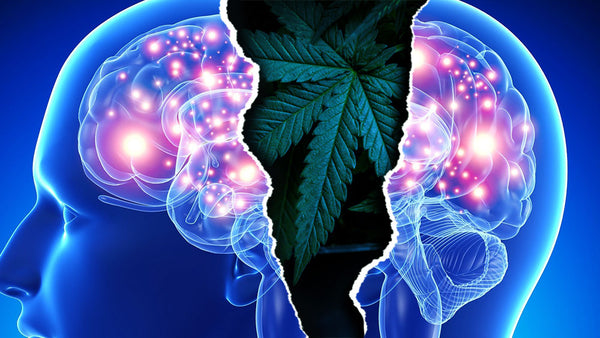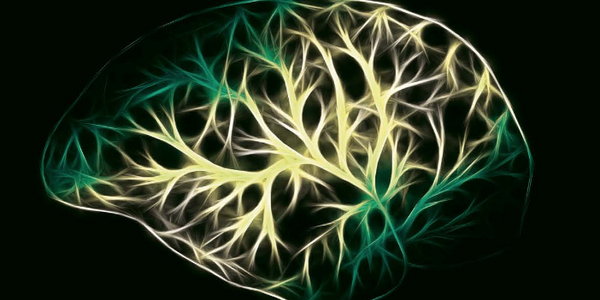Traumatic Brain Injury (TBI) is a complex and devastating condition that affects millions of people worldwide.
Its long-term effects on cognitive, emotional, and physical well-being can be profound, making it a critical area of research for potential therapeutic interventions.
In recent years, the use of cannabis-derived compounds, particularly cannabidiol (CBD) and tetrahydrocannabinol (THC), has garnered attention for their potential neuroprotective and anti-inflammatory properties.
In this blog post, we will explore the latest research on CBD and THC's potential benefits in the context of TBI.
The Role of CBD and THC in TBI

Cannabidiol (CBD) and tetrahydrocannabinol (THC) are two of the most well-known and studied cannabinoids found in the cannabis plant.
Unlike THC, CBD does not produce psychoactive effects, making it an attractive option for potential therapeutic use. Both compounds interact with the endocannabinoid system (ECS) in the human body, a complex regulatory system that plays a crucial role in maintaining balance and homeostasis.
In the context of TBI, emerging research suggests that CBD and THC may offer promising neuroprotective and anti-inflammatory effects. The ECS is known to play a vital role in modulating various physiological processes in the brain, including neuroinflammation, oxidative stress, and neurogenesis.
By targeting the ECS, CBD and THC have shown potential in minimizing damage and promoting healing after a traumatic brain injury.
CBD's Neuroprotective Potential

CBD has gained widespread attention for its neuroprotective properties. Research indicates that CBD can help reduce the severity of brain injury by modulating inflammation and promoting neuronal survival.
Preclinical studies on animal models have demonstrated that CBD can attenuate brain damage and improve functional outcomes after TBI. By reducing inflammation, CBD may limit the extent of secondary injury caused by the release of pro-inflammatory cytokines and free radicals.
Moreover, CBD's antioxidant effects play's a role in protecting brain cells from oxidative stress, a common consequence of TBI.
Oxidative stress can lead to further damage to brain tissue, exacerbating the initial injury. CBD's ability to scavenge free radicals and counter oxidative damage could potentially aid in the recovery process.
THC and the Endocannabinoid System
THC's role in TBI is more complex due to its psychoactive nature and potential side effects. However, some studies have shown that low doses of THC might also have neuroprotective effects.
THC's interactions with the ECS can modulate neurotransmitter release, impacting various brain functions, including pain perception and memory.
In the context of TBI, THC can help reduce the excitotoxicity caused by excessive neurotransmitter release, thereby protecting brain cells from damage.
However, it's essential to approach THC with caution, as high doses or prolonged use may lead to adverse effects, such as cognitive impairment and addiction potential.
The Bottom Line

CBD and THC's potential role in mitigating the effects of traumatic brain injury is an exciting area of research.
For individuals considering CBD or THC as a potential therapy for TBI or any other medical condition, it is essential to consult with a healthcare professional.
The field of cannabis-based medicine is rapidly evolving, and as more research emerges, we may gain a deeper understanding of the therapeutic potential of CBD and THC in the context of traumatic brain injury.
Until then, continued research and responsible use will be essential in unlocking the true potential of these cannabis-derived compounds for TBI patients and beyond.
References
-
Campeau, L., & Gendron, L. (2018). Cannabidiol as a Neuroprotective Agent in Neurodegenerative Diseases. Neuroscience Letters, 682, 10-17. doi:10.1016/j.neulet.2018.06.015
-
Di Marzo, V., & Piscitelli, F. (2015). The Endocannabinoid System and its Modulation by Phytocannabinoids. Neurotherapeutics, 12(4), 692-698. doi:10.1007/s13311-015-0374-6
-
Fernández-López, D., Lizasoain, I., Moro, M. A., & Martínez-Orgado, J. (2013). Cannabinoids: Well-Suited Candidates for the Treatment of Perinatal Brain Injury. Brain Sciences, 3(3), 1043-1059. doi:10.3390/brainsci3031043
-
Hill, A. J., Sahdeo, S., & Montine, T. J. (2018). Cannabinoids and Neuroprotection in Global and Focal Cerebral Ischemia and in Neuronal Cultures. Journal of Neuroscience Research, 96(6), 1187-1198. doi:10.1002/jnr.24267
-
Mechoulam, R., & Parker, L. A. (2013). The Endocannabinoid System and the Brain. Annual Review of Psychology, 64, 21-47. doi:10.1146/annurev-psych-113011-143739
-
Nagarkatti, P., Pandey, R., Rieder, S. A., Hegde, V. L., & Nagarkatti, M. (2009). Cannabinoids as Novel Anti-Inflammatory Drugs. Future Medicinal Chemistry, 1(7), 1333-1349. doi:10.4155/fmc.09.93





Comments (0)
There are no comments for this article. Be the first one to leave a message!